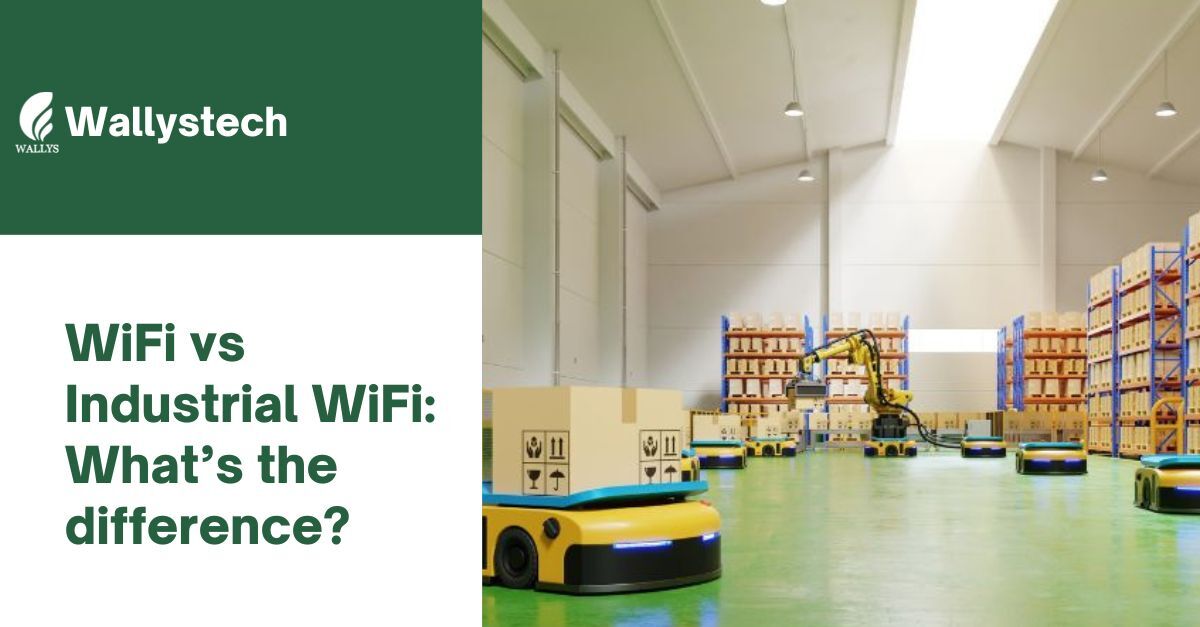Featuring IPQ4019, IPQ4029, QCN9024, IPQ5018, and IPQ5332 WiFi vs Industrial WiFi: What’s the Difference?

WiFi vs. Industrial WiFi: What’s the Difference?
In today’s connected world, WiFi has become an essential part of our daily lives, enabling seamless internet access for everything from streaming movies to conducting business meetings. However, when it comes to industrial applications, a different kind of wireless technology comes into play—industrial WiFi. Understanding the differences between standard WiFi and industrial WiFi is crucial for selecting the right solution for specific needs.
1. Purpose and Environment
Standard WiFi is primarily designed for everyday use in homes, offices, and public spaces. It facilitates general internet access and supports various devices like smartphones, laptops, and smart TVs. In contrast, industrial WiFi is engineered for use in industrial environments, such as factories, warehouses, and outdoor settings, where conditions can be more demanding. This includes exposure to extreme temperatures, dust, moisture, and electromagnetic interference.
2. Durability and Reliability
Standard WiFi equipment is generally not built to withstand harsh conditions. Components can fail when exposed to dust, humidity, or extreme temperatures. On the other hand, industrial WiFi systems are ruggedized to ensure durability and reliability. These systems are often designed with robust hardware that can operate under challenging environmental conditions, ensuring consistent performance even in the toughest settings.
3. Coverage and Range
While standard WiFi routers are effective for small to medium-sized areas, their coverage can be affected by physical obstructions and interference from other electronic devices. Industrial WiFi solutions, however, utilize specialized antennas and access points to extend coverage across larger areas. This ensures reliable connectivity in expansive industrial facilities, where traditional WiFi may struggle to reach.
4. Security
In today’s digital age, security is a top concern. Standard WiFi networks typically employ basic security protocols, which may be sufficient for everyday use. However, industrial environments often deal with sensitive data and critical operations. As a result, industrial WiFi solutions offer enhanced security features, including advanced encryption, authentication methods, and robust firewall protections to safeguard against unauthorized access and cyber threats.
5. Network Management
The management of a standard WiFi network is usually straightforward, with user-friendly interfaces suitable for home users or small businesses. In contrast, industrial WiFi requires more advanced network management systems. These systems provide tools for monitoring, troubleshooting, and managing large networks with numerous connected devices. This capability is essential for ensuring optimal performance and quick issue resolution in complex industrial setups.
6. Latency and Performance
Standard WiFi networks may experience higher latency and variable performance, particularly during peak usage times. This can be problematic for applications that require real-time communication, such as video conferencing or online gaming. Industrial WiFi, on the other hand, is optimized for low latency and high throughput. This ensures that critical applications, such as automation, remote monitoring, and data collection, operate smoothly and efficiently.
7. Cost
Finally, cost considerations differ between standard and industrial WiFi solutions. Standard WiFi equipment is generally more affordable and accessible for everyday consumers. In contrast, industrial WiFi often entails a higher initial investment due to specialized equipment and infrastructure. However, this investment can yield significant returns in terms of reliability, efficiency, and reduced downtime in demanding industrial environments.
Conclusion
In summary, while standard WiFi and industrial WiFi serve the common purpose of providing wireless connectivity, they are tailored to meet different needs. Standard WiFi is suitable for everyday use in typical settings, whereas industrial WiFi is specifically designed for robust, secure, and reliable performance in challenging industrial environments. Understanding these differences is crucial for businesses and organizations looking to implement effective wireless solutions that align with their operational requirements. Whether you need to connect devices at home or ensure seamless communication in a factory, choosing the right type of WiFi can make all the difference.

Wallys Industrial WiFi Solution
Wallys is at the forefront of delivering cutting-edge industrial WiFi solutions tailored for demanding environments. With a focus on performance, durability, and security, Wallys’ products ensure seamless connectivity and reliable operation in industrial settings. Whether you're looking to enhance automation, streamline operations, or maintain uninterrupted communication, Wallys provides robust hardware designed for the future of industrial IoT.

IPQ4019 industrial wireless solution
Check out some of our hottest products:
Upgrade your industrial wireless network with Wallys' solutions today!
Inquiry Email:sales1@wallystech.com










评论